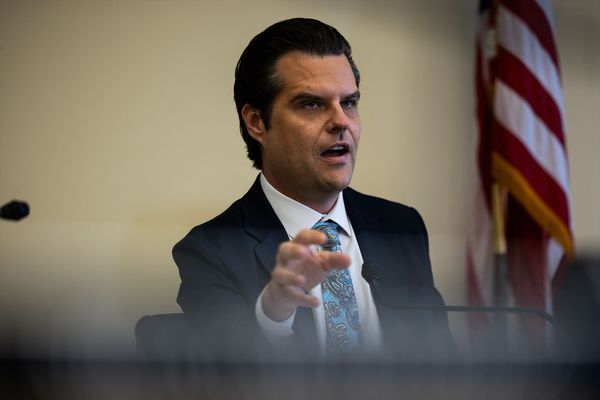
The fallout from the Alan Joyce era at Qantas continues with a $100 million fine from the consumer watchdog and $20 million in customer reparations for selling tickets on “ghost flights” that had already been cancelled during 2022.
It’s a big win for his successor Vanessa Hudson. The latest fine is barely even a tap on the wrist for a company that booked $1.7 billion in profits last year and less than Joyce, the former CEO, earned during his tenure.
Qantas has dodged a bullet by not having to face court where executives would have been grilled about its aberrant behaviour and litany of lies — including Hudson, who was in charge of the books when the company sold tickets on non-existent flights. A long trial, and any appeal, would have been another open sore for the company at a time when Hudson is desperately trying to repair its tattered reputation.
A court hearing would have also exposed the apparently perilous state of Qantas’ information technology systems that were seemingly unable to cope with a basic airline function: removing cancelled flights from their systems.
Indeed, the consumer watchdog revealed Qantas’ IT systems — like its fleet, a victim of chronic capital underinvestment under Joyce — remain creaky.
“Qantas has also undertaken to notify customers of cancelled flights as soon as practicable, and no more than 48 hours from deciding to cancel the flight,” the Australian Competition and Consumer Commission (ACCC) said.
In addition, it has “undertaken to stop selling cancelled flights as soon as practicable, and in any event within 24 hours of its decision to cancel.”
What is the use of advice two days after a booked flight has departed? This is either a frank admission by Qantas that its systems can’t cope, or it has convinced the ACCC to give it a load of wiggle room. Either way, it’s a dropped ball by the regulator that should have forced an upgrade to real-time notifications.
The cherry on top for Hudson, who is seeing too many empty seats internationally, pilots have told Crikey, is that she has struck a deal so that Qantas does not actually have to pay the fine, or compensation, until after June 30.
In the process, Qantas has also avoided a record fine from the ACCC that its chair Gina Cass-Gottlieb promised would be “double” that of the still-record $125 million Volkswagen paid in 2021 for lying about the fuel efficiency of its cars. Armed with a case that seemed a lay down misère, confirmed by Qantas’ belated admission that it had indeed broken the law, the ACCC blinked.
It is not an especially good look for the ACCC when Cass-Gottlieb and four of its other commissioners are members of the pork-heavy Qantas Chairman’s Lounge. Crikey is not suggesting there is any link between the two, only that the public perception of the ACCC’s independence might be diminished when it strikes a deal with Qantas for $120 million, when it was seeking $250 million.
If Qantas’ behaviour was “egregious and unacceptable” as Cass-Gottlieb correctly said, why meekly settle? The only answer is for the federal government to match the automatic refunds and compensation systems for cancelled and delayed flights now available in the EU, US and elsewhere.
The whole embarrassing saga speaks to a bigger problem. Along with its outsourcing debacle, Qantas management has refused to take or apportion any accountability. Apparently, these things happen all by themselves. For both disasters, the airline continues to deny reality and bonuses continue unimpeded.
In a serious company that valued its reputation and customers, bonuses from Joyce and other senior executives responsible — Hudson herself would lead the pack — would be clawed back by the board. And the board’s own chunky salaries would be docked. After all, it handed itself a 5% pay rise during the period the “ghost flights” were on “sale.”
Still, it’s not just Qantas that breaks the law with impunity — in this case it has admitted to it rather than face court — but so too a conga line of blue chip Australian companies who have collected sometimes much larger fines in recent years. For instance Westpac’s $1.3 billion and Commonwealth Bank’s $700 million for separate money-laundering offences. Banks charged dead people. Yet again, there is little or no accountability from senior management and boards: the culture of corporate Australia is on show, and it is not pretty.
For Hudson it’s onto the next payout, another hangover from Joyce — one she can’t strike a deal on and that is likely to be far more expensive. That’s the determination from Federal Court Justice Michael Lee of damages the company must pay for the illegal sacking of 1,700 ground staff in 2022. Lee heard claims by the case’s winner, the Transport Workers Union, and the airline over two weeks in March.
Meanwhile, the fine — and the prospect of a much larger one for the outsourcing — will eventually hit Qantas’ bottom line and ergo, its share price. With the company’s executive remuneration still overweight on share price performance, Hudson will be looking for even more savings. Moving into the frontline are Qantas pilots and their unions, whose enterprise bargaining agreements are now being negotiated.
Hudson has offered up a deeply inadequate “we are sorry”. Sorry they got caught, really.
Meanwhile, Qantas customers and staff will continue to carry the can for management’s greed, as Big Air and its mates in corporate Australia roll merrily along.







